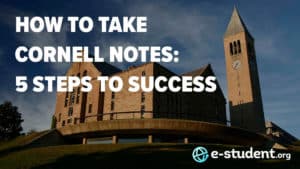Before we dive into the detailed review, let me share that this journey hasn’t been a walk in the park for me. In the midst of a writing block, I ventured into Aaron Sorkin’s MasterClass without grand expectations, just driven by sheer curiosity about what wisdom Aaron has to offer (it’s THE Aaron Sorkin, after all!). Little did I know, it turned out to be a ruthless spotlight on the not-so-subtle flaws in my storytelling technique. This MasterClass is, indeed, more than a usual tutorial; it didn’t just pass on knowledge but rather peeled back the layers of my ongoing script. Each lesson acted like a flashlight, exposing nuanced aspects that were craving attention and finesse.

But, here’s the real talk – this expedition isn’t a universal remedy. This course rather is a tailored suit; it fits those who are already acquainted with the basics of screenwriting and are on a quest to elevate their craft.
Table of Contents
Who is Aaron Sorkin?
Aaron Sorkin has carved his name into the annals of Hollywood history through an impressive repertoire of accomplishments. Revered for his distinctive voice and storytelling prowess, he definitely has left an indelible mark on Hollywood and across both the grandeur of cinema and the intimacy of television.
Sorkin isn’t just a screenwriter; he’s the maestro behind epic narratives that have rocked both the big and small screens. Think The West Wing (1999-2006) and the lightning-fast dialogue of The Social Network (2010) – that’s Sorkin’s genius at work.
With a trophy shelf stacked with Academy Awards and Golden Globes, Sorkin is like the Yoda of storytelling, guiding aspiring writers into the magical realms of cinematic brilliance.

And now, he’s spilled some of his secrets in a MasterClass on screenwriting. It’s not your average course; it’s a backstage pass to the mind of a creative maestro.
Who is this course for?
Aaron Sorkin’s MasterClass caters to a more or less limited audience, specifically:
- Intermediate aspiring writers: Individuals who harbor a keen interest in screenwriting with a foundational understanding of screenwriting, aiming to deepen their knowledge and craftsmanship through insights provided by Aaron Sorkin.
- Devotees of Sorkin’s work: Fans who appreciate Aaron Sorkin’s unique style and want an exclusive opportunity to gain a deeper understanding of his creative process.
- Storytelling enthusiasts: Those captivated by the art of storytelling, irrespective of their filmmaking background, seeking to elevate their narrative abilities and deepen their understanding of the Hollywood scene
- Familiarity with Sorkin’s style: Writers who resonate with Aaron Sorkin’s distinctive storytelling and wish to incorporate elements of his approach into their own writing.
- Film students: Students in the realm of film and television studies, eager to acquire practical insights and guidance from a luminary in the industry.
As highlighted earlier, and I can’t stress this enough, this course might not be the right fit for:
- Absolute beginners. If you’re expecting a Screenwriting 101, this might not be for you. You should also know that Aaron doesn’t actually teach you screenwriting or delve into the fundamentals. You are supposed to take the class with some knowledge of how to write a screenplay.
- Casual learners: If you’re looking for a casual exploration into screenwriting without a strong commitment, this course may be more in-depth than what you’re seeking.

Highlights:
The Aaron Sorkin MasterClass, spanning 35 videos with a total viewing time of nearly 8 hours, offers a comprehensive journey into the art of screenwriting. Alongside the videos, MasterClass provides a very helpful 33-page workbook and screenplays for A Few Good Men (1992) and The Social Network (2010), enriching the learning experience.
Here’s a glimpse of what you’ll explore:
Lessons 1-3: Intention & obstacle, story ideas
- Establishing key points before writing
- Determining strong intentions and obstacles
- Exploring conflicts in stories
- Differentiating feature film vs. TV ideas
Lessons 4-5: Developing characters
- Tying intention and obstacle to character development
- Using case studies from The Social Network (2010) and The West Wing (1999-2006)
Lessons 6-7: Research
- Types of research and their challenges
- Insights into research for Steve Jobs (2015) and non-fiction writing
- Balancing truth and creative license
Lesson 8: Audience
- Connecting with the audience
- Assessing screenings and managing audience expectations
- Failures and successes in audience impact
Lesson 9: Rules of story
- Utilizing a universal rulebook for drama
- Diagnosing issues in scripts
- Exercise to understand and apply rules
Lesson 10: Film story arc
- Implementing rules of drama in structuring narratives
- Exploring the 3-act structure
- Creating engaging hooks and maintaining viewer interest
Lesson 11: Writing habits
- Establishing writing habits and overcoming blocks
- Insight into Sorkin’s writing process and tools
- Focusing on progress and emotional well-being
Lessons 12-16: Group workshops
- Group readings, loglines, and pitches
- Aaron’s feedback on student scripts
- Reinforcement of drama rules
Lessons 17-18: Writing scenes
- Purposeful scene writing for story progression
- Techniques for scene transitions
- Case studies from The American President (1995) and The Newsroom (2012)
Lessons 19-22: Scene case studies
- Detailed scene studies from Sorkin’s works
- Illustrating intention and obstacle in scenes
- Connecting theory to practice
Lessons 23-24: Writing captivating dialogue
- Importance of dialogue in storytelling
- Musicality in dialogue
- Examples from The West Wing (1999-2006) and other works
Lessons 25-26: Rewrites
- Focusing on rewriting instead of mere editing
- Killing your darlings and cutting scenes
- Building strong working relationships
Lessons 27-34: The West Wing Writers’ Room
- Simulated Writers’ Room experience
- Creating characters, developing conflict
- Setting up a hypothetical start for The West Wing (Season 5)
Lesson 35: Closing thoughts
- Importance of taking chances in the industry
- Acknowledgment of the role of failure
- Open-ended questions for writers
What I liked about Aaron Sorkin’s MasterClass
- Self-paced learning: The absence of time constraints allows for flexible learning, accommodating various schedules and commitments.
- Brief lesson duration: With each lesson capped at fifteen minutes, there’s a deliberate effort to prevent overwhelming learners, making it suitable for bite-sized consumption.
- Comprehensive depth in one place: The course’s advantage lies in consolidating over 7 hours of teaching into one accessible location. MasterClass effectively organizes the content into substantial chapters, providing users with an easy-to-navigate structure for flexible learning.
- Insightful anecdotes: Delving deeply into discussions about his own films and TV series, Aaron Sorkin offers a rich experience, especially for enthusiasts of his work. While those unfamiliar with his creations might find this aspect less captivating, it’s likely you’d still gain valuable insights from the content.
- Practical application: The course effectively bridges the gap between theory and practice, offering practical applications of Sorkin’s teachings to the intricacies of scriptwriting.
- Super helpful study guide: The workbook is well-structured and helps navigate the hefty lessons much more easily. I recommend printing it out so you can make notes and fill in the available sections below each lesson.
- MasterClass production quality: I was really impressed by MasterClass’ production quality. Aaron delivered well, but MasterClass as a website/platform truly exceeded my expectations. Outstanding production value, a user-friendly interface – just overall fantastic.
Drawbacks of Aaron Sorkin’s MasterClass
- The monologue format: Besides the workshops, the course heavily relies on the talking head format, with Sorkin as the central focus, lacking diversity in instructional methods.
- Varying lesson depth: Inconsistencies in the depth of lessons may leave learners wanting more, with certain topics being superficially covered.
- Sorkin’s articulation: Sorkin’s speech, as he admits, lacks clear organization, making it challenging for learners to follow certain points.
Main takeaways
I embarked on the journey of Aaron Sorkin’s MasterClass with a healthy dose of skepticism, unsure of what a seasoned screenwriter could truly offer to someone still finding their footing. Surprisingly, the course provided more than just insights into Sorkin’s process; it became a catalyst for a significant shift in my ongoing script. I’ve been stuck on characterization for quite some weeks.

I especially enjoy the part where Sorkin delves into the intricacies of writing dialogue (lesson 12). He emphasizes its highly personal nature and the inherent uniqueness that each writer brings to this craft. It really helped remind and liberate me from the constraint of strict realism, cautioning against the trap of making characters sound too scripted for television.
With that being said, Aaron’s MasterClass does not emerge as particularly unique, as it draws from well-known texts and features discussions about Sorkin’s writing process in various other forums. Especially if you’ve delved into Aristotle’s Poetics or read screenwriting guides like The Screenwriter’s Bible, the MasterClass might not offer groundbreaking insights. And to be honest, his workshops gave me unwanted flashbacks to every creative writing course I ever took in college. However, its value lies in consolidating nearly 8 hours of teaching into one accessible space and, most importantly, structured into user-friendly chapters for flexible learning. Furthermore, as I’m already contemplating a screenplay, Aaron’s MasterClass serves as an excellent chance to kickstart my writing journey. I personally found his encouragement and humble sharing very impactful.
Besides, MasterClass as a website really knocked it outta the park. Kudos to the MasterClass website for its user-friendly interface. Navigating through the platform is a breeze, and the design truly boosts the learning journey. The inclusion of features like the workbook, extra resources, and lesson highlights brings a lot of value to the course. The platform’s dedication to creating a polished and visually pleasing educational environment significantly enriches my overall learning experience.

How much does the MasterClass cost?
MasterClass is a subscription-based learning platform, so it’s not possible to purchase courses individually. If you want to take this MasterClass, you have to become a subscriber.
The standard annual plan has been renamed "Plus" and is available at $120 a year (which makes it $10 per month, billed annually), and now provides access to all MasterClass courses on two devices instead of one. The Premium plan, providing access for up to six devices costs $240 per year.
A MasterClass subscription gives you unlimited access to a catalog of 200+ classes, so if you want to take multiple classes throughout the year, the subscription is definitely worth it, and there are pleny of interesting courses on related topics to explore.
Also, the platform offers a 30-day satisfaction guarantee, so if you’re not happy with your learning experience, you can request a full refund.
Note that the "Standard" membership, priced at $72 per year, only gives you access to their short-form learning content – none of their full MasterClasses are included.
Conclusion: Is Aaron Sorkin’s MasterClass worth it?
In conclusion, navigating through Aaron Sorkin’s MasterClass proved to be a revealing journey for an aspiring screenwriter like myself. While it might not be a universal remedy, tailored more for those familiar with the basics of screenwriting, it does offer a deep dive into the mind of a master storyteller.
For intermediate writers seeking to elevate their craft, devotees of Sorkin’s unique style, storytelling enthusiasts craving a deeper understanding of the craft, and film students eager for practical insights, this MasterClass is worth the investment. Despite some flaws in the monologue format, broadness in certain lessons, and occasional organizational challenges, the self-paced learning, comprehensive depth in one accessible location, and insightful anecdotes make it a valuable experience.
The MasterClass website’s impressive production quality and user-friendly interface further enhance the overall educational journey. If you fall within the targeted audience and are looking for a motivational boost or practical guidance, consider embarking on this screenwriting expedition with Aaron Sorkin. While it won’t magically transform you into a professional writer, it can reinforce foundational knowledge and provide a better understanding of Hollywood screenwriting basics.
For a limited time, up to 50% off your subscription.




